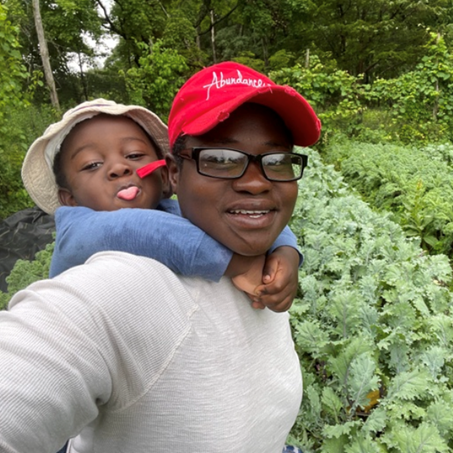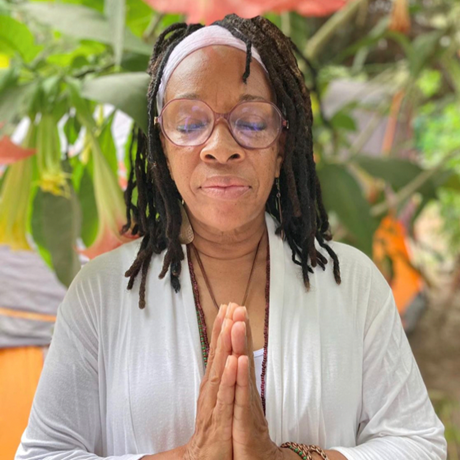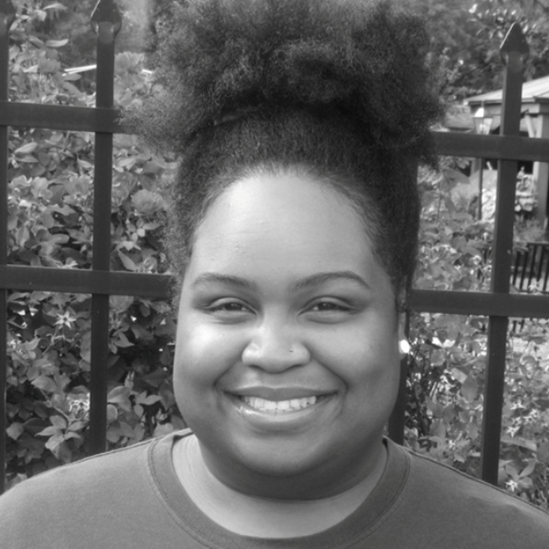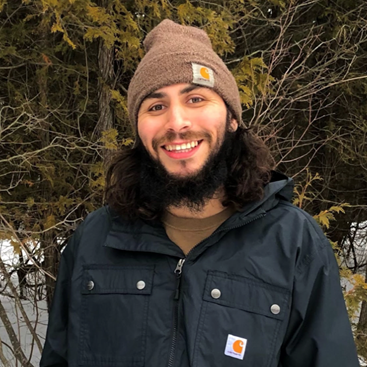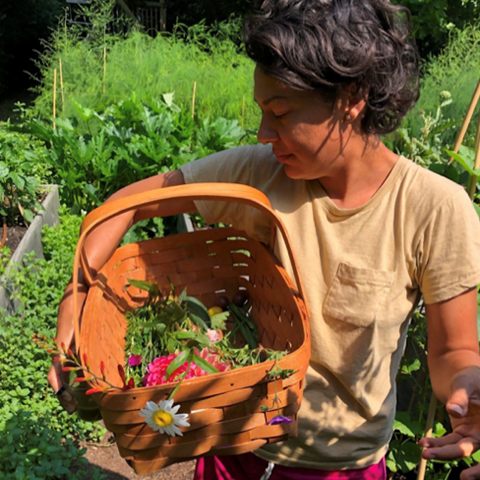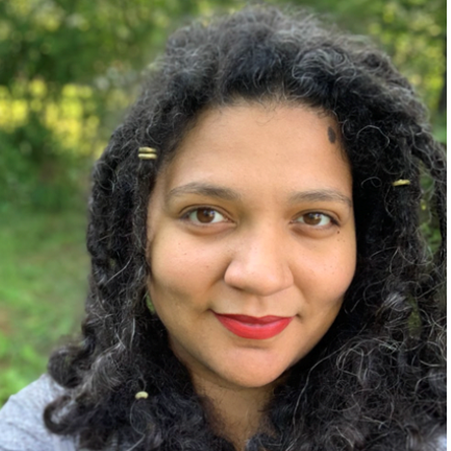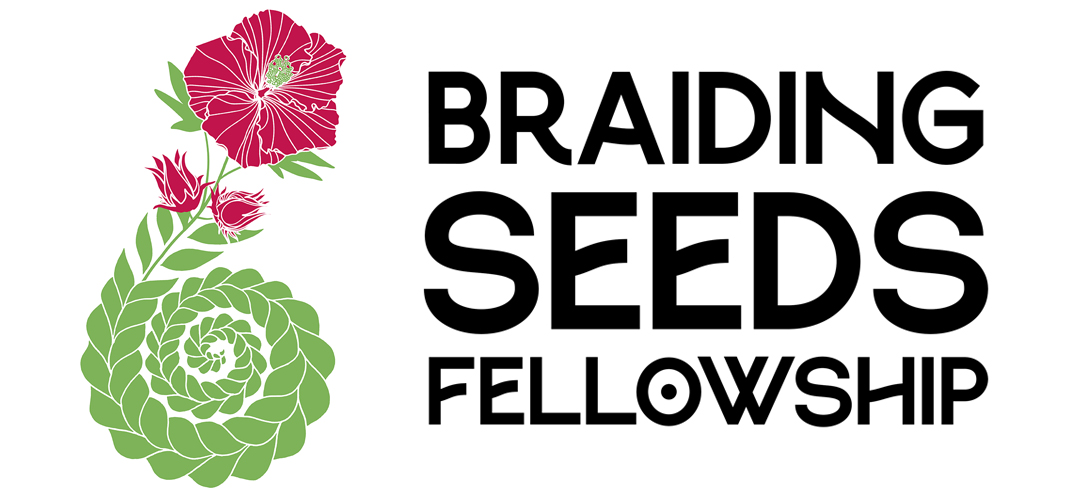
PURPOSE
Honor and respect to our ancestral grandmothers who braided seeds and promise into their hair before being forced onto transatlantic slave ships. They believed, against odds, that we, their descendents would exist to inherit, plant, and pass on that seed.
The Braiding Seeds Fellowship, a project of Soul Fire Farm Institute in collaboration with the Federation of Southern Cooperatives/Land Assistance Fund, carries on the legacy of the braided seeds by providing beginning farmers with resources, professional development, and mentorship to support their livelihood on land.
The inaugural cohort was drawn from the southeast and northeast, along certain corridors of the Underground Railroad and the Great Migration. We are working to bridge north-south and legacy-returning generations of farmers.
Application Details
How do I apply?
Click here for the 2024 application. The deadline is May 1, 2024 at 11:59 pm EST. Due to the volume of applications and a short review turnaround time for our Selection Committee we are unfortunately unable to accept late applications.
*Note: To prepare your responses and review the full application in advance, you can preview a non-fillable version HERE.
*Note: In order to complete the application, which includes file uploads, you will be required to sign into a Gmail account. If this presents a problem, please email us to discuss alternative options.
Before beginning the application, we recommend gathering the required supporting materials you will be asked to upload, including:
- Three (3) references with names, contact information (email, phone, address), and their relationship to you and your project. References can be from collaborators, mentors, family, friends, or contacts from educational or work settings. It will be especially helpful if they can speak about you as a farmer/land steward and your project. *Note: at least one (1) of your references must be a community member who has knowledge and/or experience with your project.
- One (1) photo of yourself
- One (1) photo, diagram, or drawing of your farm/land stewardship project. (*This is optional.)
We recommend saving your longer responses in a separate document where you can back them up, edit, and copy/paste into the application form.
If you have any access concerns, if it is a hardship for you to complete a written application, and/or if you have any technical issues with this form, please email braidingseeds@soulfirefarm.org.
All applicants will be notified of final decisions on or before July 8, 2024.
Frequently Asked Questions
What do fellows receive as part of the program?
Braiding Seeds fellows receive a $50,000 stipend; a menu of professional development opportunities including 1:1 mentorship, workshops, farm finance and business plan support; cohort gatherings; and individualized coaching.
What are the obligations of fellows as part of the program?
Farming will be the main work of fellows, who will dedicate a minimum average of 20+ hours per week on their farms during the growing season. Fellows will attend online and (COVID conditions allowing) in-person cohort gatherings for networking and professional development. Fellows will also complete at least 50 hours of professional development over 18 months from the menu provided, including: 1:1 mentorship, workshops, farm finance and business plan support. Fellows are also asked to provide feedback and suggestions to inform future years of the program. Fellows will participate in regular 1:1 check in meetings with fellowship staff as well.
What are the dates of the fellowship program?
The fellowship will begin on July 24, 2024 and will end on December 31, 2025. It is an 18-month program.
What if I have questions that aren’t addressed in this FAQ?
We will have extensive time for Q&A during the Application Info Session on 3/29/24, 12:00-1:30 pm EST (Zoom registration here). We are also happy to answer questions at braidingseeds@soulfirefarm.org.
Please also reference these materials from the last application cycle—the information shared in them still applies:
-2023 Application Info Session Zoom recording and slides
-2023 Informational Q&A with Selection Committee Partners Zoom recording, slides, and Selection Committee Resource Sheet
-2023 Recording of IG Live Launch with Fellows & Alumni
Who qualifies as a farmer?
For the purpose of the fellowship, a farmer is a person whose livelihood entails collaboration with an ecosystem to produce food, forage, seeds, medicine, or other crops. The returns of their labor may afford the farmer wages, sales, and/or community-provisioning and they may be termed a peasant, urban grower, campesino, farmworker, row crop farmer, shepard, herb grower, schoolyard gardener, nonprofit farmer, ocean farmer, orchardist, fiber farmer, etc. They have in common tending to the earth as their means of ‘securing the necessities of life.’ The fellowship looks to support farmers who are producing at a scale that can support the wider community, and not just a single household.
Who is eligible to apply?
Beginning farmers and land stewards, ages 18+, with a minimum of 1 year of farming and/or land stewardship experience and no more than 3 years of management level farming and/or land stewardship experience, are welcome to apply. The fellowship is for Black, Indigenous, and people of color farmers* based in the northeast and southeast of the United States, including all states and territories that touch the Atlantic Ocean and its tidal arms (ME, NH, MA, RI, CT, NY, NJ, MD, VA, NC, SC, GA, FL, DC, DE, MS, AL, LA, PA, WV, VT.) The fellowship is for individuals, though fellows are welcome to share their resources with collaborators in their respective projects. Applicants should be passionate about the flourishing of Black agrarianism, Indigenous sovereignty, and the liberation of all peoples impacted by racial capitalism and settler colonialism.
Can I still apply if I am not based in one of those states and territories?
At this time, the fellowship remains focused on farmers based in the northeast and southeast of the United States, including all states and territories that touch the Atlantic Ocean and its tidal arms (ME, NH, MA, RI, CT, NY, NJ, MD, VA, NC, SC, GA, FL, DC, DE, MS, AL, LA, PA, WV, VT.) Future cohorts may have a different geographic focus. We encourage you to stay tuned for updates in the future.
How are the fellows selected?
The selection committee is drawn from representatives of Black and Indigenous-centered farming organizations in the northeast and southeast, including Federation of Southern Cooperatives, Land Loss Prevention Project. Fresh Future Farm, National Black Food and Justice Alliance, Native American Food Sovereignty Alliance, NEFOC, New Communities Inc/SW GA Project., Black Church Food Security Network, Southeastern African American Farmers’ Organic Network, Farms to Grow, Black Farmer Fund, Farm School NYC, RAFI – Farmers of Color Network, Jubilee Justice, Sipp Culture, and Intertribal Agriculture Council.
Each application will have at least 2 reviewers. In addition to reviewing whether an applicant meets the main eligibility criteria (asked for in Question 14 of the application), reviewers will score an application using the following 6 questions:
- Does the applicant describe a clear farm/land stewardship project, in which they will play a key leadership role? (0-15 points)
- Is the project’s mission and approach in alignment with the fellowship’s commitment to the flourishing of Black agrarianism, Indigenous sovereignty, and the liberation of all peoples impacted by racial capitalism and settler colonialism? (0-15 points)
- Does/will the project have strong community involvement and impact? (0-15 points)
- Does this project have financial and other support needs unlikely to be met without the fellowship? (0-15 points)
- Has the applicant identified clear and doable goals, project timeline, and planned next steps? (0-15 points)
- Does this project have an intersectional vision and approach to food sovereignty? (0-15 points)
*As a Black-centered program, the cohort will be supermajority Black and will also prioritize Indigenous applicants.
What about Spanish-speaking farmers?
El primero de abril (1 de abril del 2024) el Northeast Farmers of Color (NEFOC) va a abrir la aplicación para La Beca. El programa de La Beca es exclusiva para agricultores que hablan español que se encuentren en el este de Estados Unidos y Puerto Rico. Si estas interesade de aprender más por favor contacta a Gaby Pereyra, a su correo electrónico: gaby@nefoclandtrust.org.
Our partners at Northeast Farmers of Color Land Trust (NEFOC) plan to open the application for La Beca on April 1. Please notice that La Beca is for Spanish-speaking farmers and land stewards of the Eastern United States and Puerto Rico. If you want to learn more and receive notifications, please contact Gaby Pereyra at gaby@nefoclandtrust.org.
$2500 Mini-Grants
In addition to the fellowship, we will also be awarding 12 runners-up with mini-grants of $2500 each. You have the option of applying for one of these mini-grants within the fellowship application form (see Section 11). Opting in or out of consideration for the mini-grant will not positively or negatively impact the ranking of your overall fellowship application.
Mini-Grant Eligibility & Reporting: Mini-grant funds must be used for charitable or educational purposes and relate to farming and/or ecological land stewardship. Mini-grant recipients are required to spend down funds by December 2024 and will be asked to complete a short questionnaire detailing how funds were used.
Click Here for Additional FAQs
2023-2024 Fellows
2022-2023 Fellows
2021-2022 Inaugural Fellows
Testimonials from Fellows
This sacred fellowship is definitely going to change your life. You probably won’t be able to figure out how, but it will make you expand into your fullest potential in ways that you might not have remembered that you were able to do. When we are making plans and visioning in alignment with the soil, this soil that encompasses this entire universe, these plans are energized by the energy/frequency in the soil, and your vision capacity becomes larger than you could ever imagine! Being a recipient of the fellowship is the beginning of this journey. Being awarded the resources to dream in this way, especially for people of color, is reparation on behalf of our ancestors. Endless gratitude Braiding seeds collective and for Sarah and Lulu, who stewarded us with patience, knowledge, understanding and love.”
The stipend provided a bit of a safety net and some space to breathe and make decisions with an energy of planned action instead of survival and reaction.
I’ve always had a bigger vision for the work that Fountain Heights Farms will do, but this is the first time that I have had both the financial safety AND a circle of very generous and knowledgeable people helping me to sort through and record the vision. This fellowship has provided so many opportunities and the experience will continue to inform my work and the work of Fountain Heights Farms forever.”

